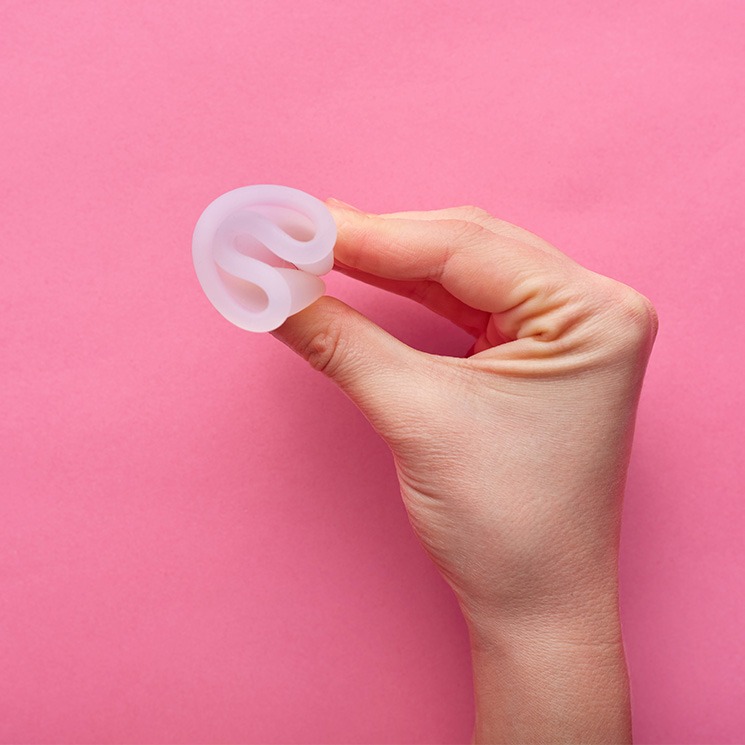Introduction:
In the ever-evolving landscape of menstrual hygiene, traditional practices involving sanitary napkins and tampons are under scrutiny for their environmental impact and health concerns. Recognizing the urgency for a sustainable shift, this comprehensive guide sheds light on the challenges posed by conventional products and introduces the transformative potential of menstrual cups.
Current Challenges with Sanitary Napkins and Tampons:
Environmental Impact:
Traditional menstrual products contribute significantly to environmental pollution, generating immense waste that ends up in landfills and oceans.
Chemical Concerns:
Sanitary napkins and tampons often contain undisclosed chemicals, raising health concerns and potentially disrupting the natural pH balance of the vagina.
Discomfort and Health Risks:
Prolonged use of traditional products can lead to discomfort, skin irritation, and an increased risk of bacterial infections. The absorbent nature of these products may contribute to conditions like toxic shock syndrome (TSS).
Cost and accessibility:
While the initial cost of traditional products may seem affordable, cumulative expenses over time can be substantial. Accessibility remains a challenge in certain regions, impacting overall menstrual health.
“Sanitary napkins and tampons often contain undisclosed chemicals, raising health concerns and potentially disrupting the natural pH balance of the vagina.
Learn more about these concerns here-
https://www.ncbi.nlm.nih.gov/pmc/articles/PMC6504186/
The Imperative for Change: A Paradigm Shift Towards Menstrual Cups
Reduced Environmental Footprint: Commitment to Sustainability
Menstrual cups, crafted from medical-grade silicone, rubber, latex, or elastomer, embody a commitment to sustainability. Their reusability dramatically reduces the environmental impact associated with traditional menstrual product disposal.
Material Innovation and Certification: Ensuring Quality and Safety
The materials used in menstrual cups are meticulously chosen for sustainability and adhere to stringent quality standards. Rigorous certification processes ensure compliance with the highest industry benchmarks for safety, hygiene, and eco-friendliness.
Long-Term Cost Efficiency: A Savvy Investment in Sustainable Hygiene
Beyond sustainability, menstrual cups offer long-term cost savings. The initial investment, slightly higher than traditional products, is offset by the durability of cups and a commitment to quality assurance, ensuring an economical and reliable solution for menstrual hygiene.
Promoting a Circular Economy: Closing the Loop on Sustainability
Menstrual cups exemplify the principles of a circular economy by encouraging a closed-loop system. The commitment to quality control ensures that each menstrual cup contributes to the longevity of sustainable practices, reducing the demand for single-use items and fostering a circular approach to consumption.
Certified Quality Control Facilities: Upholding the Highest Standards
State-of-the-art quality control facilities play a pivotal role in ensuring the highest standards of quality, safety, and sustainability. Every menstrual cup undergoes meticulous inspection and testing, reinforcing the commitment to delivering products that not only meet customer expectations but also surpass industry norms.
ISO 13485:2016, ISO 10993-4,5,10,11, ROHS, and More
ISO 13485:2016: Medical Devices Quality Management
Certification signifies adherence to stringent quality management systems for medical devices, a testament to the commitment to producing menstrual cups that meet the highest standards of quality and safety.
Link for more details:
https://www.iso.org/obp/ui/en/#iso:std:iso:13485:ed-3:v1:en
ISO 10993-4,5,10,11 – Biological Evaluation of Medical Devices
Commitment to user safety is underscored by adherence to ISO 10993 standards for biological evaluation. Thorough tests ensure that menstrual cups are biocompatible, hypoallergenic, and safe for prolonged use.
Link for more:
https://www.iso.org/standard/63448.html
ROHS Compliance
Ensuring that menstrual cups are ROHS-compliant certifies that products are free from hazardous substances, aligning with dedication to user health and environmental responsibility.
Conclusion:
In championing sustainability and quality, this guide stands at the forefront of the menstrual cup revolution. The unwavering dedication to reducing environmental impact, fostering material innovation, ensuring long-term cost efficiency, and promoting a circular economy is fortified by our state-of-the-art, certified quality control facilities.
As we collectively strive for a greener future where sustainability and quality seamlessly intertwine, we invite you to explore more about our commitment and initiatives. To delve deeper into the transformative world of menstrual cups and learn how you can be a part of this paradigm shift, we encourage you to explore our product brochure.
https://www.chemcogroup.com/menstrual-cups
Discover the tangible benefits of sustainable menstrual hygiene and find opportunities to collaborate with us on this journey towards a healthier planet and a more conscious consumer experience. Together, let’s shape a future where every choice we make contributes to a positive impact on the world we share.
